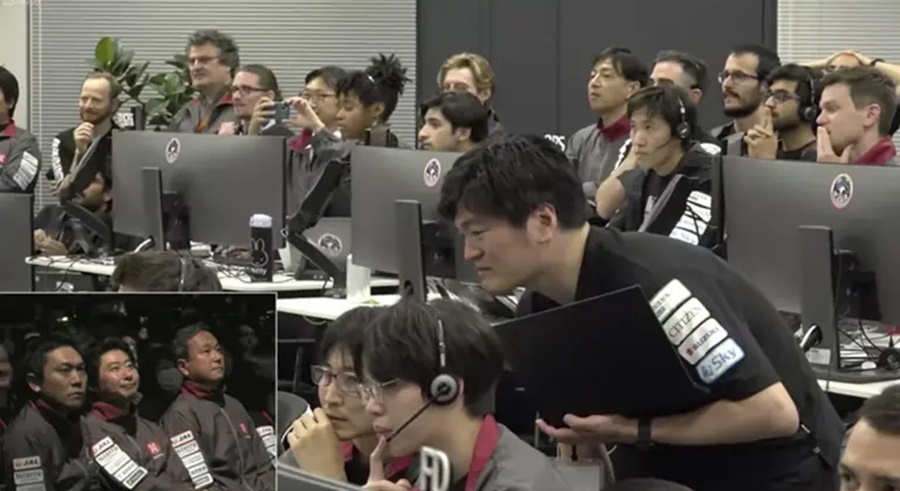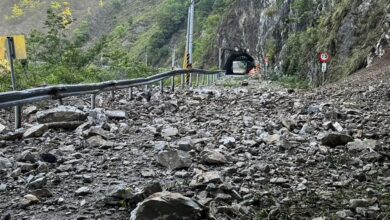Japanese company’s moon landing failed: Hopped out
"White Rabbit" - the Japanese company ispace gave their moon lander this affectionate name.

But right now nobody knows how the rabbit is doing. Although he is apparently on the moon, but the contact is lost.
You look at the screen with excitement, everything still looks good. The lunar lander “Hakuto-R”, which means “white rabbit”, is approaching its target, the lunar surface. He’s only a few kilometers away, sends pictures to earth, but then it happens: Hakuto can’t or doesn’t want to anymore. Stop sending, the communication breaks off.
For the founder and CEO of ispace, Takeshi Hakamada, and his comrades-in-arms, a dream has just burst, the first commercial moon landing has failed for the time being. The Japanese smiles wearily as he says:
“We confirmed that we had maintained communications until the end of the landing. However, after that we lost contact and have not been able to re-establish contact to date. Our engineering team is working hard to investigate the incident using the flight data recorded to date.”
“Depending on the result, we might still have hope”
Landing the “white rabbit,” which would release other vehicles to the surface for those 12 days to explore the moon, was the biggest challenge from the start. Because a landing, as one employee described it, is comparable to slipping off a ski jump at the edge of which you suddenly have to stop.
Is the aircraft still walking around on the moon, or is it missing a leg, has it stumbled in the meantime and may even work again at some point, making its inventor happy? The engineers should now be able to work on this around the clock.
“We must first determine the status of the lunar module,” says Hakamada. The previous flight data would be examined and analyzed. “And depending on the result, we might still have hope – but I can’t say anything just yet.”
Setbacks are part of it for the boss
The fact that the Japanese startup, which if successful could also have claimed the first Japanese moon landing, has now simply shot more than 180 million euros onto the moon, is of course different for Ispace Managing Director Hakamada. Setbacks are part and parcel of such complex and difficult missions.
“I think we could land on the moon,” he says. The challenge is that many of the tests cannot be replicated for the entire lunar environment. “So we have to rely on the data or the simulation.” That is why it is so important to have the flight data, “which is an advantage for the future documentation and improvement of our aircraft”.
Remain optimistic despite defeat – that is the motto of the Japanese visionary, who is obviously still looking ahead. He doesn’t want to give up his dream of his moon valley, where up to 1000 people will live and work by 2040. Hopefully not a dark valley.


